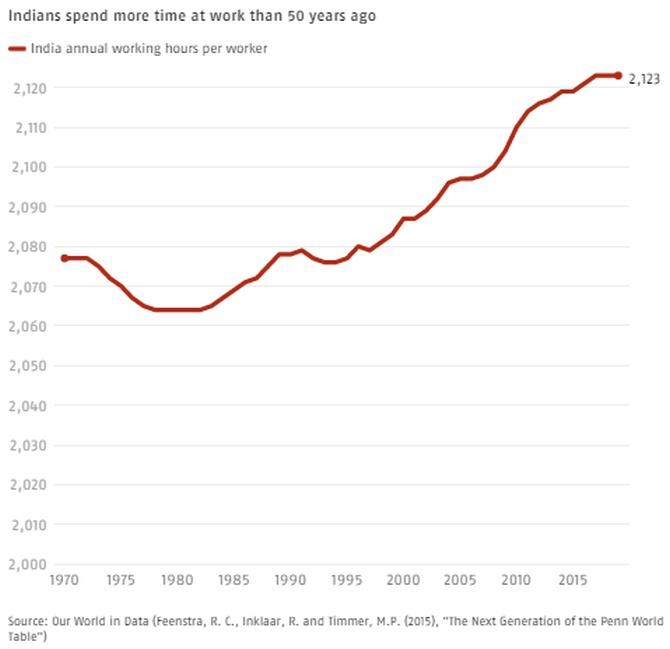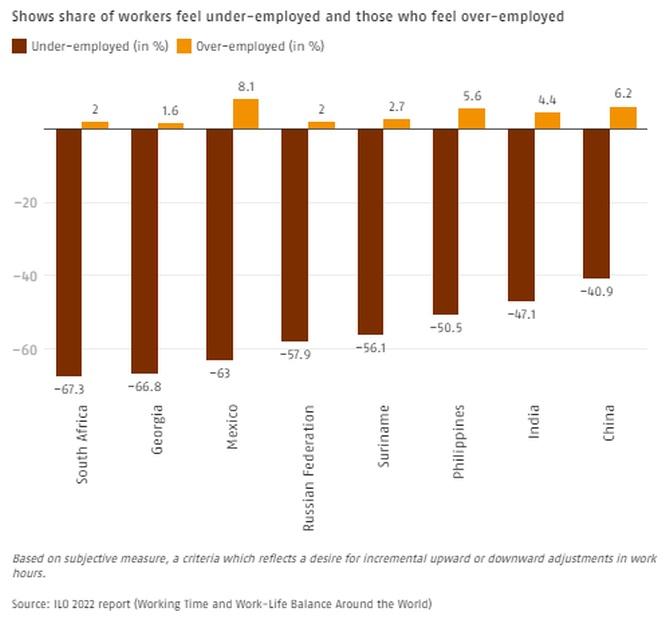Never mind work-life balance: this generation spends more time on the job than ever before.

Japan's government is pushing for a shorter work-week, holding the country's famously long hours partly responsible for fewer people getting married or having children.
Indians put in longer work hours than the Japanese, shows a Business Standard analysis of data sets including those cited by a recent International Labour Organization report.
Indians worked 2,123 hours annually before the pandemic in 2019, or 25.5 per cent longer than the 1,691 hours the Japanese put up.
And while Japan's working hours have been coming down since 1990, India's are going up (chart 1).
Work hours have only been going up

Regular wage earners or salaried employees worked the longest hours in India, shows data from the government's Periodic Labour Force Survey. Their hours are longer than people who are self-employed or do casual labour (chart 2).
Regular wage/salaried employees have longest hours

It is surprising but Indians want to work for even longer hours. The ILO report shows only 4.4 per cent Indians feel over-employed.
Over-employment is defined as working longer hours than employees would like and under-employment is the opposite. Around 47.1 per cent of workers would like to work longer hours (chart 3).
Most Indians would like to work even longer

The report said low income means that people in developing countries often need to work long hours to make ends meet. A recent government report suggested that around 90 per cent of Indians earn less than Rs 25,000 a month.
The sense of being over-employed is higher in Japan (10.1 per cent), as it is in other high-income countries like Switzerland (11 per cent) and Sweden (15.5 per cent).

Poor work-life balance can affect mental health, physical well-being as well as people's abilities to fulfill other life responsibilities like taking care of elderly parents or young children, said the report called Working Time and Work-Life Balance Around the World.
'Companies that implement work-life balance policies benefit from increased retention of current employees, improved recruitment, lower rates of absenteeism and higher productivity,' the report stated.
'For example, a study of 45 companies across North America that facilitated work-life balance found the presence of such policies to be associated with increased employee retention and improved recruitment,' the report pointed out.
Around 6 per cent of China's workers feel over-employed, with work hours declining as the country grew wealthier.
For India too, prosperity may have to precede any hope of work-life balance.
Feature Presentation: Rajesh Alva/Rediff.com










